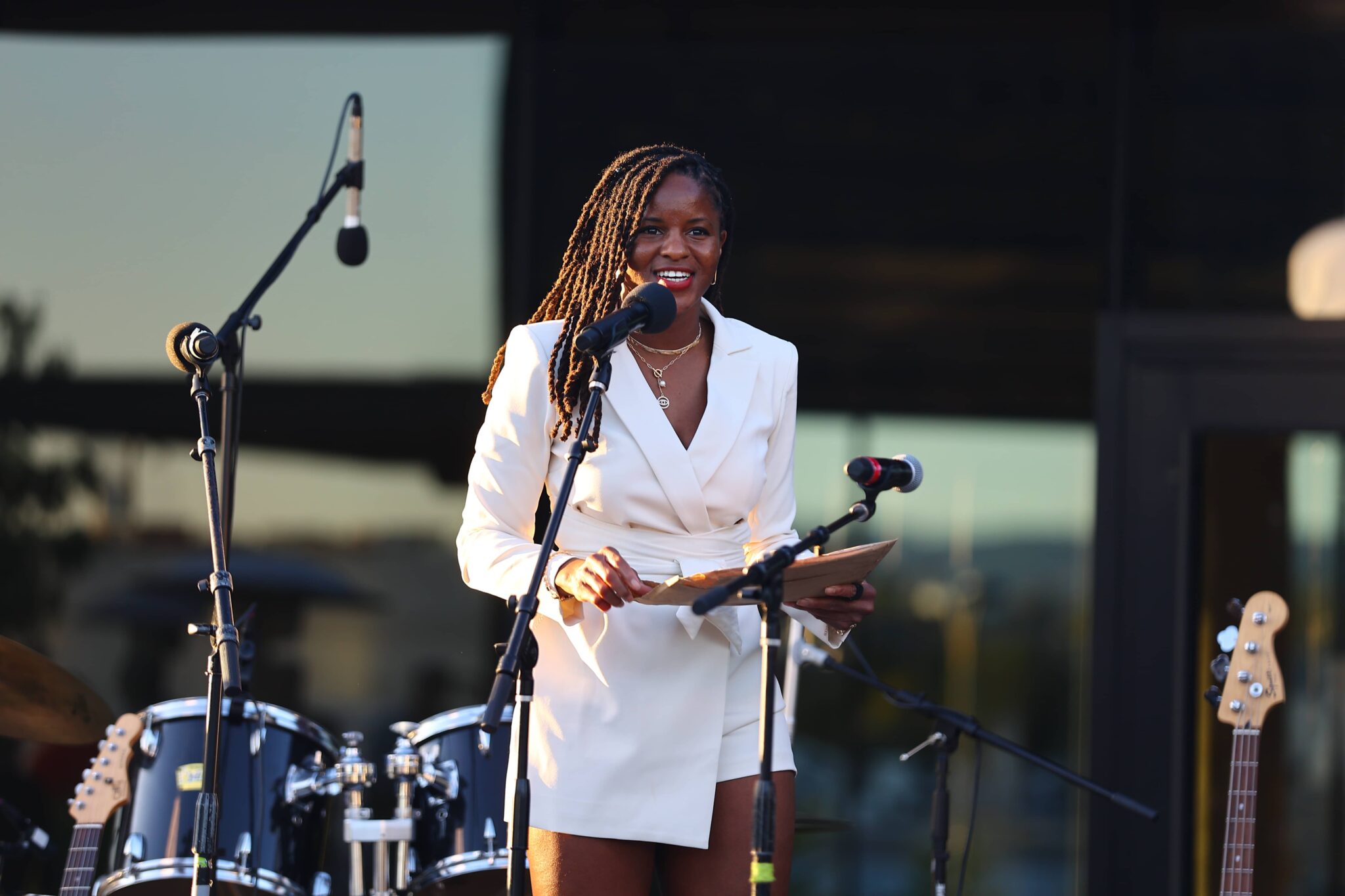In 2014, Ifunanya Nweke met a middle schooler named Ruben who’d change the course of her career.
Nweke, an alum of the USC Sol Price School of Public Policy, was training to be a behavior therapist at the time. As part of her instruction, she spent the day following Ruben – a seventh grader with autism – from class to class. Nweke noticed the boy usually kept to himself in the corner of classrooms, where he was the only student on the autism spectrum.
But when Ruben entered music class, he transformed into a leader. He played piano and sang with a beautiful, velvety tone. He corralled the rest of the class behind him. One student joined him with a guitar, another on bass. With his presence and musical talent, Ruben had influenced his environment and communicated with his classmates. Nweke was blown away.
“I couldn’t unsee that,” Nweke said. “I figured there must be other individuals who are on the autism spectrum that music may be at least one way for them to connect to their peers, build community around themselves and eventually be leaders of that community.”
That unforgettable moment proved to be the beginning of Jazz Hands for Autism, a nonprofit Nweke launched later that year. Nearly a decade later, the Culver City-based group has provided music training, vocational development and job placement for more than 150 musicians with autism. Jazz Hands has become an advocate for neurodivergent people in the music industry, getting the attention of Billboard magazine.
Jazz Hands winter concert showcased musicians with autism
The nonprofit recently hosted its 18th concert, where musicians with autism performed in front of friends, family and the community.
“It helps us change the way that autism is perceived in our social landscape,” Nweke said of the winter concert that featured 19 musicians. “When you see somebody on stage performing and they’re having the time of their life – singing their heart out and having so much stage presence – something powerful happens in the way that you perceive them.”
“You see them as more able, more capable,” she continued. “It creates inclusion by allowing the general public to see individuals with autism as people who have something to offer.”
